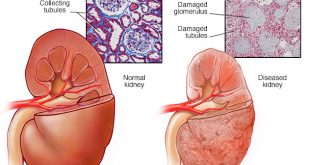What is Hepatitis C?
Hepatitis C is a virus which can infect the liver and causes liver disease. Hepatitis C is spread by contact with the blood of an infected person.
You may have an increased chance of getting Hepatitis C if you :
- Inject illegal drugs
- Received blood transfusions or solid organ transplants especially before 1992 when there are no strict testing for a blood donating became available.
- Receive hemodialysis treatment in a dialysis unit with large number of patients with hepatitis C
Less commonly, hepatitis C may be spread by:
- Passing from an infected mother to her baby during childbirth
- Having unprotected sex with an infected person
- Sharing items such as razors and toothbrushes with an infection persons.
- Exposure to sharp instruments contaminated with infected blood, such as needles used for tattooing, body piercing and acupuncture (these needles should be carefully cleaned and disinfected before use, or disposable needles should be used).
Can I get hepatitis C through my dialysis treatment?
The chance of getting hepatitis C through your treatment is small because of the strict infection control measures used in dialysis units today. However, there have been some reports that hepatitis C has been spread between patients in hemodialysis units where supplies or equipment may have been shared among patients. In Malaysia, patients on regular dialysis will be screened for hepatitis C infection regularly. Hepatitis C patients are dialyzed in a separate room with dedicated machines, equipment and nursing staff.
Can I get hepatitis C from a blood transfusion?
The chances are small because of better testing of blood donors, which became available in 1992.
How do you know if you have hepatitis C?
Blood tests are available to check for hepatitis C. People who are at increased risk should be tested. Prior to the start of dialysis, all patients will be checked for hepatitis C. The doctor may do a combination of tests to make the diagnosis. Many people who have hepatitis C have no symptoms and feel well. For some, the most common symptom is extreme tiredness.
Is hepatitis C a serious illness?
Hepatitis C is serious for some persons but not for others. Most of the people who get hepatitis C carry the virus for the rest of their lives. Most of these persons have some liver damage, but many do not feel sick from the disease. Some of those with liver damage due to hepatitis C may develop scarring of the liver and liver failure, which may take many years to develop. Others have no long term effects.
Are treatments available for hepatitis C?
Yes. Drugs are available to treat hepatitis C. A combination of interferon alpha-2b and another drug called ribavirin has shown a better success rate than treatment with interferon alpha alone. However, these treatments are costly and the need to start such treatment will be made by the liver specialists.
How can you prevent hepatitis C?
At present, no vaccine is available for hepatitis C. However, researchers are working to develop a vaccine, and it may be available in the future. In the meantime, the following steps can help to prevent hepatitis C:
- Do not inject illegal drugs
- Do not share toothbrushes, razors or other personal care articles that might have infected blood on them
- Follow safe sex guidelines
- If you are considering getting tattoos or body piercing, make sure the tattoo artist or piercer follows good health practices such as washing hands and using disposable gloves
| Last Reviewed | : | 3 May 2016 |
| Writer | : | Dr. Loh Chek Loong |
| Accreditor | : | Y. Bhg. Datuk Dr. Ghazali bin Ahmad |
 PENDIDIKAN PESAKIT Kementerian Kesihatan Malaysia
PENDIDIKAN PESAKIT Kementerian Kesihatan Malaysia
